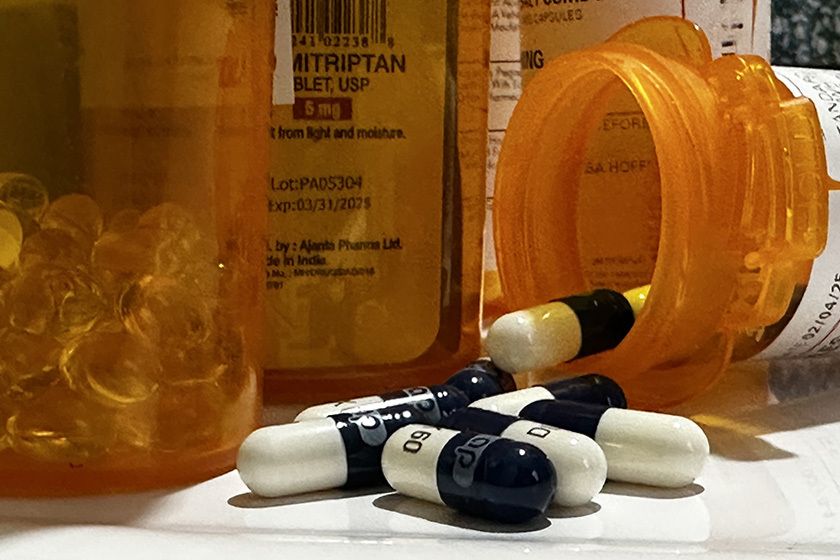
The new law only applies to brand drugs without a generic that manage chronic pain or are considered "life-saving." It will affect health plans that are "issued, delivered, amended, or renewed" after Dec. 31, 2025. (Abigail Ruhman/IPB News)
Pharmaceutical drugmakers sometimes offer financial assistance for high-cost speciality drugs. But insurance companies aren't required to apply that assistance to a person's deductible or out-of-pocket maximum. A new Indiana law will soon change that for certain prescription drugs.
If someone is filling a monthly $1,000 prescription, and they have a $4,000 coupon or drug card, the value of the manufacturer's coupon is applied for four months. Health plans don’t have to count that financial assistance towards someone’s deductible or out-of-pocket maximum, but the person enrolled in the plan may not learn that until months later.
When the manufacturer's assistance doesn't count towards a deductible or maximum, that's what's known as a "copay accumulator."
Rep. Robin Shackleford (D-Indianapolis) said for someone with a $7,000 deductible, that $4,000 could get them most of the way to their deductible.
“Under this legislation, because we're going to ban that practice now, when they go to the pharmacy, that $4,000 counts towards their deductible,” Shackleford said. “Now they only have to pay $3,000.”
The language in House Enrolled Act 1604 establishes that the change only applies to brand drugs without a generic that manage chronic pain or are considered “life-saving. It will affect health plans that are “issued, delivered, amended, or renewed” after Dec. 31, 2025.
Join the conversation and sign up for our weekly text group: the Indiana Two-Way. Your comments and questions help us find the answers you need on statewide issues, including our project Civically, Indiana.
Shackleford said she pushed for a broader ban on the practice at the beginning of session. She was joined by Rep. Ben Smaltz (R-Alburn) in that effort. But, Shackleford said the current language will still help Hoosiers at the pharmacy counter.
“This is a savings they will see immediately,” Shackleford said.
Health policy experts say the needs of the patients are caught in the middle of two major industry players: health plans and drug manufacturers. Shackleford said efforts to ban the practice at the federal level haven’t been successful, but 19 other states have passed bans on copay accumulators.
“Half the states have banned it just on brand name drugs, and if they don't have a generic,” Shackleford said. “The other half have banned it on all drugs.”
Indiana is the only state, according to Shackleford, to be this specific about which drugs are included in the ban on the practice.
Abigail is our health reporter. Contact them at aruhman@wboi.org.











